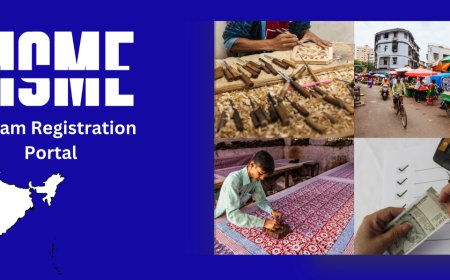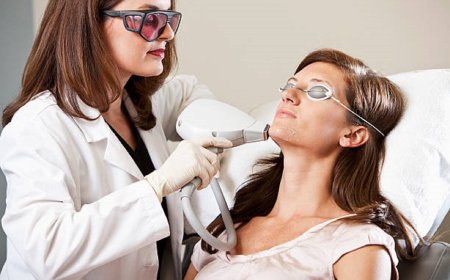How Safe Are Plastic Surgeries in Saudi Arabia?
Looking for a trusted plastic surgeon in Riyadh? Dr. Ahmed Jarrah offers expert cosmetic procedures with precision, safety, and patient care.

Plastic surgery has become increasingly popular worldwide, and Saudi Arabia is no exception. With advancements in medical technology, a growing number of people are choosing cosmetic and reconstructive procedures to enhance their appearance or restore function after trauma or illness. But as demand rises, so do questions about the safety and standards of these surgeries in the Kingdom. Understanding the safety protocols, regulatory environment, and expertise available can help you make informed decisions about your health and well-being.
When considering a plastic surgeon in Riyadh, safety is often the top priority. Patients want to know that their procedure will be performed in a sterile, well-equipped facility by a qualified professional who follows international best practices. This blog explores the safety landscape of plastic surgery in Saudi Arabia, what patients should expect, and how to choose the right surgeon for optimal outcomes.
The Regulatory Environment for Plastic Surgery in Saudi Arabia
Oversight by the Saudi Ministry of Health
The Saudi Ministry of Health (MOH) sets strict guidelines for all medical procedures, including plastic and reconstructive surgeries. These regulations ensure that only licensed and board-certified surgeons can perform such procedures, and that clinics and hospitals maintain the highest standards of hygiene, equipment, and patient care.
-
All plastic surgeons must be registered with the Saudi Commission for Health Specialties (SCFHS).
-
Facilities are regularly inspected for compliance with safety protocols.
-
Continuous professional development is required for practitioners to keep up with the latest techniques and safety measures.
International Accreditation and Standards
Many leading hospitals and clinics in Saudi Arabia, particularly in Riyadh and Jeddah, have received international accreditations such as Joint Commission International (JCI) certification. This means they adhere to global standards for patient safety, infection control, and surgical procedures.
The Role of Experienced Surgeons
Choosing a highly qualified specialist is crucial for safety and successful results. In Saudi Arabia, youll find renowned experts like Dr. Ahmed Jarrah, a respected Plastic and Reconstructive Surgeon known for his commitment to patient safety and ethical practice. Surgeons with extensive training and experience are adept at minimizing risks and handling complications should they arise.
-
Board-certified surgeons undergo rigorous education and hands-on training.
-
They are skilled in both cosmetic and reconstructive procedures, ensuring comprehensive care.
-
Surgeons like Dr. Ahmed Jarrah prioritize patient education, informed consent, and realistic expectations.
Safety Protocols Before, During, and After Surgery
Preoperative Assessment
Safety begins with a thorough preoperative assessment. This includes:
-
Detailed medical history and physical examination.
-
Discussion of expectations, potential risks, and alternatives.
-
Laboratory tests and imaging if necessary to assess overall health.
The Surgical Environment
-
Surgeries are performed in accredited hospitals or clinics with advanced operating rooms.
-
Strict sterilization and infection control measures are followed.
-
Anesthesia is administered by qualified anesthesiologists, with continuous monitoring throughout the procedure.
Postoperative Care
-
Patients receive clear instructions for recovery and follow-up appointments.
-
Emergency protocols are in place for any unexpected complications.
-
Support staff monitor patients closely for signs of infection, bleeding, or adverse reactions.
Common Risks and How They Are Managed
While plastic surgery is generally safe when performed by qualified professionals, all surgical procedures carry some risk. The most common risks include:
-
Infection at the surgical site
-
Bleeding or hematoma formation
-
Scarring or delayed wound healing
-
Anesthesia-related complications
Experienced surgeons and accredited facilities are well-equipped to manage these risks. They use advanced techniques, sterile equipment, and evidence-based protocols to minimize complications.
Patient Education and Informed Consent
A key aspect of safety is ensuring that patients are fully informed about their procedure. Surgeons take time to explain:
-
The steps involved in the surgery
-
Expected outcomes and possible complications
-
Recovery timeline and aftercare requirements
This empowers patients to make confident, well-informed decisions about their care.
Advances in Plastic Surgery Technology
Saudi Arabias leading clinics invest in state-of-the-art technology to further enhance safety and results. Innovations include:
-
Minimally invasive surgical techniques that reduce recovery time and risk
-
Advanced imaging for precise planning and simulation
-
Improved anesthesia and pain management protocols
These advancements contribute to higher patient satisfaction and lower complication rates.
The Importance of Choosing the Right Plastic Surgeon in Riyadh
Selecting the rightplastic surgeon in Riyadhis perhaps the most important factor in ensuring safety. Look for:
-
Board certification and credentials from recognized authorities
-
Positive patient reviews and testimonials
-
A track record of successful outcomes and ethical practice
Consulting with a reputable specialist like Dr. Ahmed Jarrah at a trusted clinic ensures you are in capable hands from consultation to recovery.
What Patients Should Expect
Personalized Consultation
Each patient receives a customized treatment plan based on their unique needs, goals, and medical history. Surgeons discuss all available options and help set realistic expectations.
Transparent Communication
Clear, honest communication between surgeon and patient is essential. All questions and concerns are addressed before moving forward.
Comprehensive Aftercare
Follow-up visits and ongoing support are provided to monitor healing and address any issues promptly.
Conclusion
Plastic surgery in Saudi Arabia, especially when performed by a qualifiedplastic surgeon in Riyadh, is safe and effective thanks to strict regulations, advanced technology, and highly trained professionals. By choosing a reputable clinic and an experienced surgeon like Dr. Ahmed Jarrah, patients can feel confident in their decision and look forward to positive, lasting results.
Ready to take the next step toward your aesthetic goals? Schedule your consultation with Dr. Ahmed Jarrah at Royal Clinic Saudia today and experience expert care in a safe, supportive environment.
Frequently Asked Questions (FAQs)
Which plastic surgeries are most common in Saudi Arabia?
The most popular procedures include rhinoplasty, breast augmentation, liposuction, tummy tucks, and facial rejuvenation. Reconstructive surgeries for trauma or congenital conditions are also widely performed.
How do I verify a plastic surgeons credentials in Riyadh?
Check for board certification with the Saudi Commission for Health Specialties and look for membership in international societies. Reputable clinics are transparent about their surgeons qualifications.
What should I do to prepare for plastic surgery?
Follow your surgeons preoperative instructions, which may include stopping certain medications, arranging transportation, and fasting before surgery. A thorough consultation will cover all necessary steps.
Are there age restrictions for plastic surgery in Saudi Arabia?
Most elective procedures require patients to be at least 18 years old, but reconstructive surgeries may be performed on younger patients when medically necessary.
Take the first step toward safe, transformative resultsbook your appointment with Dr. Ahmed Jarrah at Royal Clinic Saudia today!






































